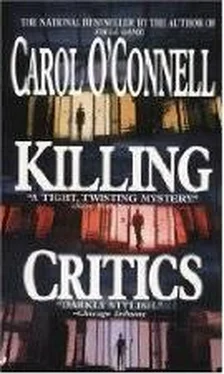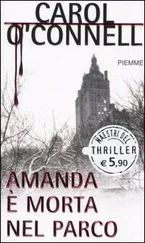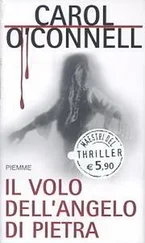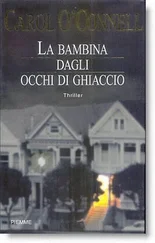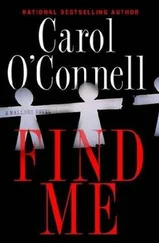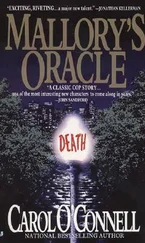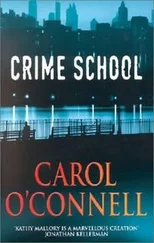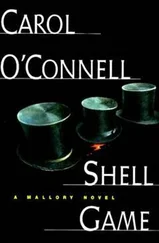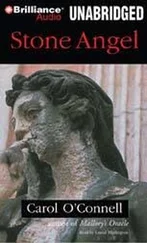Carol O’Connell - Killing Critics
Здесь есть возможность читать онлайн «Carol O’Connell - Killing Critics» весь текст электронной книги совершенно бесплатно (целиком полную версию без сокращений). В некоторых случаях можно слушать аудио, скачать через торрент в формате fb2 и присутствует краткое содержание. Жанр: Триллер, на английском языке. Описание произведения, (предисловие) а так же отзывы посетителей доступны на портале библиотеки ЛибКат.
- Название:Killing Critics
- Автор:
- Жанр:
- Год:неизвестен
- ISBN:нет данных
- Рейтинг книги:3 / 5. Голосов: 1
-
Избранное:Добавить в избранное
- Отзывы:
-
Ваша оценка:
- 60
- 1
- 2
- 3
- 4
- 5
Killing Critics: краткое содержание, описание и аннотация
Предлагаем к чтению аннотацию, описание, краткое содержание или предисловие (зависит от того, что написал сам автор книги «Killing Critics»). Если вы не нашли необходимую информацию о книге — напишите в комментариях, мы постараемся отыскать её.
Killing Critics — читать онлайн бесплатно полную книгу (весь текст) целиком
Ниже представлен текст книги, разбитый по страницам. Система сохранения места последней прочитанной страницы, позволяет с удобством читать онлайн бесплатно книгу «Killing Critics», без необходимости каждый раз заново искать на чём Вы остановились. Поставьте закладку, и сможете в любой момент перейти на страницу, на которой закончили чтение.
Интервал:
Закладка:
Riker tipped back his glass, the sooner to forget Koozeman’s walk through the solid wall. He might need reading glasses, he would cop to that, but there was nothing wrong with his long-distance vision. And what about the myopic hundred guests at the Dean Starr show? “I still can’t believe Starr got stabbed in a room full of people and nobody saw it.”
“Well, Koozeman’s patrons are a rather self-absorbed group,” said Quinn.
The reporters were being led away from the feeding tables by Avril Koozeman. He was flanked by gallery boys holding wine bottles as lures. Bearing full glasses and paper plates filled to overflowing, the ladies and gentlemen of the news media settled into the remaining seats.
One rowdy press photographer in the back row yelled, “Bring on the noise!”
The minister cleared his throat, and tapped the microphone on the lectern.
Riker was feeling the ten cups of coffee drunk before all the wine was slugged back. Seeing no signs with familiar men’s room symbols, he pressed his legs together as he leaned close to Quinn and whispered, “So where is the can?”
The minister’s voice was amplified in volume, but carried little weight with the crowd as he began to speak over the babble of conversation. “I’m afraid I know very little about Mr. Starr. I’m told he’s only been an artist for a short time. I know nothing about his life before that. Perhaps I may call on others to help fill in the gap.”
Riker’s I-got-to-pee-or-die body language was escalating with the crossing and recrossing of his legs.
Quinn inclined his head toward Riker. “Sorry?”
“Where is the toilet?” Riker spoke with the slow careful enunciation of foreigners and drunks, and in a volume to be heard above the minister, who was making his second appeal.
Quinn pointed to a hallway off the main room. “It’s that way, first door to your right.”
Quinn turned back to the second row and nodded a greeting to Andrew Bliss. It was a courtesy of long acquaintance, but not friendship. He noticed that Bliss was not his usual twitchy self today. In fact, the man was so inebriated, it could only be inbred good manners that kept him from sliding to the floor.
“Hey, Bliss,” called one of the reporters from the back row. “Loved the art terrorist column. How come you didn’t throw in the old Oren Watt murders?”
Ever the chameleon, Bliss’s complexion changed from a rosy, sotted flush to a pale cast of clammy skin, perhaps the better to blend in with the dead man. Summoning a burst of energy, Bliss gathered up his raincoat and fled the gallery with unnatural speed.
Now Quinn displayed that flicker of emotion that Riker had been hoping for in the restaurant.
He resumed his mask and willed his mind to other things-the increasingly rowdy guests and the little minister, who solemnly shook his head, taking this afternoon’s entertainment far too seriously from Quinn’s point of view.
A young woman entered the gallery and set off a flashbulb in the camera of a drunken, yet discriminating photographer in the bleachers. The light show spread across the rows in a chain of pops and blinding lights, accompanied by the music of low whistles.
She was tall, and it took Quinn’s eyes a while to travel over all of her. The black leather running shoes were top-of-the-line. Though he could not see the back pocket of her jeans, he knew it would bear a designer’s name. A long black trench coat was draped over the shoulders of her blazer, which was cashmere, and her T-shirt was silk. He would bet his stock portfolio that her curls were styled in a Fifty-seventh Street salon, but not dyed there, for this was that most unusual creature, a natural blonde in the spectrum of burnished gold.
In every other aspect of her, a lifetime’s experience in stereotyping humans had failed him. He could not hazard her occupation or her exact status in the world. All he knew for certain was that her eyes were green, and if it was true that one could read another’s soul by the eyes, this young woman didn’t have one.
She sat down next to him. Her perfume was expensive and discreet.
He knew they had never met; one did not forget such a face. Yet she was familiar.
Riker was back from the men’s room and tugging on his sleeve. “Be careful of that one. She carries a big gun.”
Quinn smiled indulgently.
“Okay, watch this.” Riker leaned across his person to say, “Hey, Mallory. You got the paperwork on the stiff?”
She reached into her blazer, which had an inside pocket. The garment was obviously tailor-made. Women who bought their clothes off the rack were denied such pockets. And now her upper body was turning toward him, her hand pulling out folded sheets of paper, and he could see the large gun in her shoulder holster. She ignored him, passing the fold of papers across his body as though he were merely an inconveniently situated object.
And now he placed her, but he had to travel back many years to do it. She was the child of Special Crimes Section.
He had only seen her on a few occasions in Inspector Markowitz’s office. All those years ago, he had found it amazing to see a little girl moving in and out of discussions of murder. She had been stealthy, appearing suddenly, lighting by the desk to hand Inspector Markowitz a stack of printouts, and then off again, later returning to Markowitz to wheedle money for the candy machine. In passing, the child had glanced at the art critic, found him uninteresting, and passed on.
“ That’s my kid ,” the inspector had told him then, behind the child’s back and with obvious pride. Though Quinn later realized that pride was not in the child’s beauty but in the quick intelligence behind her glittering eyes. He then learned that the girl frequently came in after school to jump-start the glitch-ridden computer system for her foster father. Markowitz had not resisted the urge to brag.
“ Kathy can do anything with a computer,” Markowitz had said. “ This afternoon, she taught it to fetch the newspaper. ”
The proof of this was in the copy of a crime reporter’s column, a fresh spate of information leaked from NYPD. It contained a plethora of typos and misspellings and could only have come from the city editor’s personal computer. This had been part of Markowitz’s plea for special cooperation, for concealment and covert assistance. And so Quinn’s conspiracy with this policeman had begun over an illegal computer theft by the baby hacker, Kathy Mallory. The other documents she produced had led them down dark streets of utter madness and up steep inclines of theory. The child had been a prolific thief.
“I was sorry to hear of Inspector Markowitz’s death,” he said to the young woman beside him. “I liked your father very much.”
And this was true. Markowitz had been a man of deep grace and charm, undisguised by his excess poundage and a bad suit. When Quinn had read of the man’s death in the papers, he felt the planet diminish beneath his feet because this policeman was no longer among them. He could count on three fingers the people who had so affected him.
“I believe I was of some assistance to your father. If I can help you, of course I will.” He handed her his card, and with it the unlisted number which was given out to few people in this world.
“I’ll need to talk with Gregor Gilette,” she said. “You might be able to help with that. We can’t work the old case in the open, so you could prepare him for the interview, ask him to keep it quiet.”
“That would be difficult. He spent so many years getting over his daughter’s death. He won’t want to deal with this again.”
“Well, that’s too bad, because it’s going to happen. It’s all new again. I’m starting over.”
Читать дальшеИнтервал:
Закладка:
Похожие книги на «Killing Critics»
Представляем Вашему вниманию похожие книги на «Killing Critics» списком для выбора. Мы отобрали схожую по названию и смыслу литературу в надежде предоставить читателям больше вариантов отыскать новые, интересные, ещё непрочитанные произведения.
Обсуждение, отзывы о книге «Killing Critics» и просто собственные мнения читателей. Оставьте ваши комментарии, напишите, что Вы думаете о произведении, его смысле или главных героях. Укажите что конкретно понравилось, а что нет, и почему Вы так считаете.
